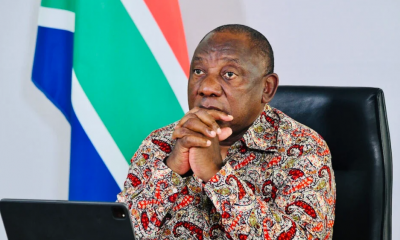411
Vodacom and CIVH’s Fibre Merger Blocked: What This Means for South Africa’s Broadband Future

What Happened with Vodacom and CIVH’s Merger?
The Competition Tribunal recently blocked the merger between Vodacom and CIVH’s fibre businesses, including Vumatel and DFA. The deal would have combined their fibre networks into a new company, Maziv. This merger could have expanded fibre-to-the-home (FTTH) services in South Africa, especially in townships.
But the Tribunal found that the merger could harm competition. Despite Vodacom and CIVH offering several benefits, such as investing R10 billion, the Tribunal ruled against it. This delay could slow down important broadband projects in underserved areas.
Why Was the Deal So Important?
The Vodacom-CIVH merger was crucial for expanding fibre access in South Africa. Vumatel planned to grow its affordable Vuma Key service, offering 10Mbps uncapped fibre for just R99 a month to low-income households. With Vodacom’s funding, Maziv could have rapidly expanded this service to more South Africans, especially in rural and low-income areas.
The merger also promised to:
- Invest R10 billion over five years.
- Provide free high-speed internet to schools and police stations.
- Create 10,000 new jobs.
- Establish a R300 million fund to help small businesses.
Despite these promises, the deal faced opposition, and the Tribunal’s ruling has delayed these investments.
Herotel’s View on the Fibre Industry
Herotel, South Africa’s third-largest fibre operator, expressed concern about the ruling. They say blocking the deal has delayed crucial investments for nearly three years. This is a major setback for broadband expansion in the country.
Herotel believes mergers are key for creating the scale needed to grow the telecom industry. Without enough investment, fibre expansion could stall. In 2024, fibre network construction slowed down significantly. While 1.5 million homes were connected in 2023, only 400,000 homes were connected in 2024.
This slowdown affects more than just fibre companies. It hits the construction sector, causing job losses. Fibre expansion also drives economic growth. With less investment, South Africa risks falling behind in the digital race.
What’s Next for the Fibre Industry?
The fibre rollout continues despite this setback. Other companies, like Octotel and Frogfoot, are sticking to their expansion plans. For Vodacom and CIVH, the future of the merger is uncertain. They are considering appealing the Tribunal’s decision when the reasons for the ruling are made public.
The ruling has sparked debate about the future of the fibre market. Some argue that blocking mergers limits investment, which is needed to close the digital divide. Herotel points out that government support for telecom infrastructure is critical for the economy.
Reactions from the Industry
Herotel, which owns 49% of Vumatel, supported the merger. Other companies, like MTN and Rain, also backed the deal, as long as the right conditions were met. Some fibre operators, such as Octotel and MetroFibre, are waiting for more information before commenting.
However, concerns were raised by Frogfoot’s founder, Abraham van der Merwe. He worried that the DFA acquisition could reduce competition in the fibre market.



























